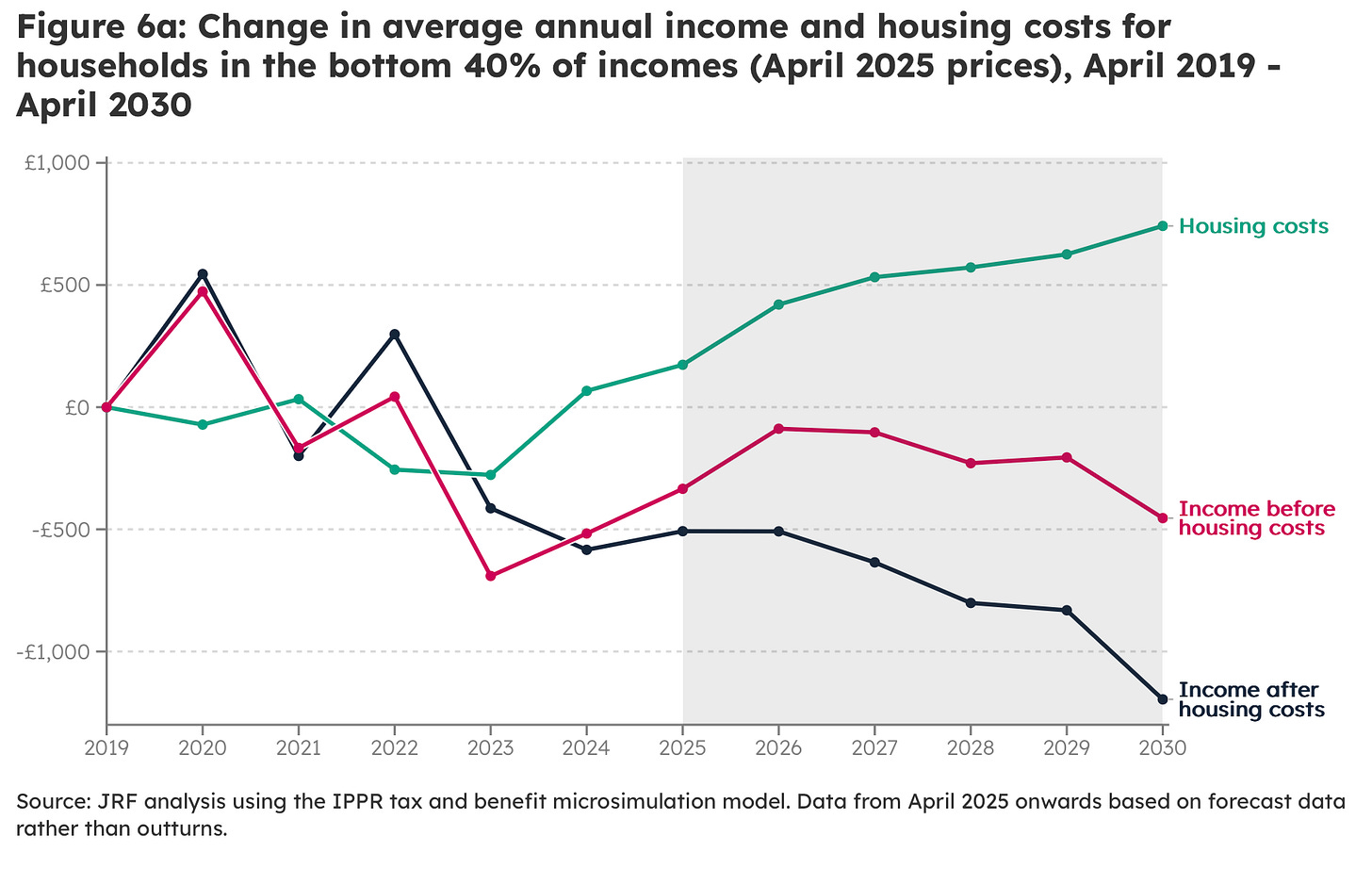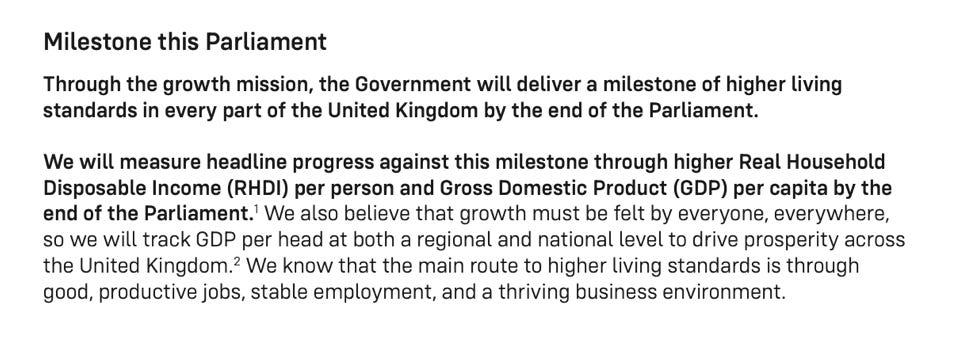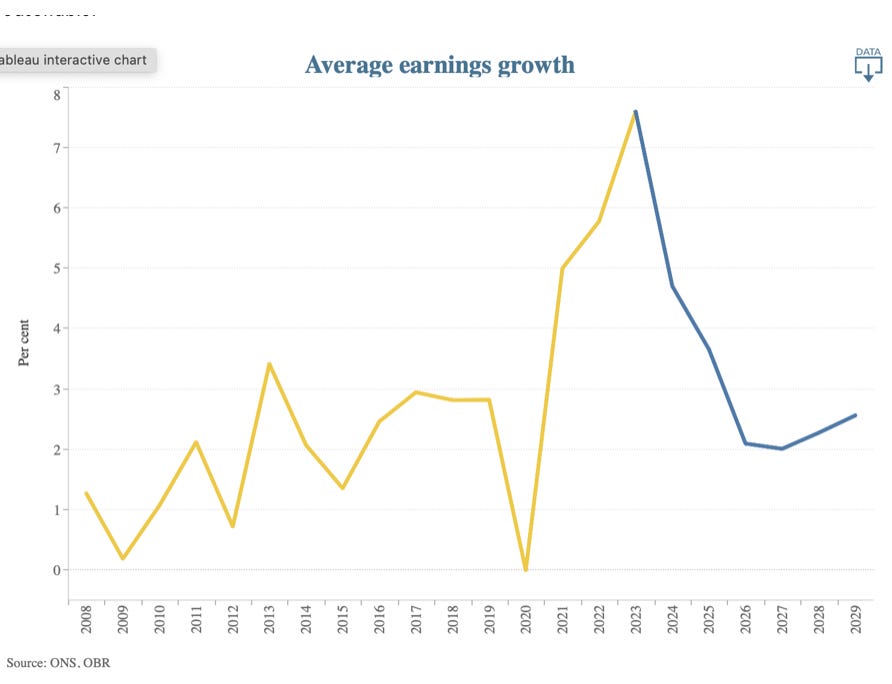Five questions that light up the living standards challenge
My questions to the PM were designed to highlight the strategic challenge ahead on raising living standards.
Three times a year the prime minister comes before the Liaison Committee of Select Committee Chairs, for an hour and half of questions. It’s a good format but in the past hasn’t delivered its full potential because Chairs tended to ask about their own departmental interests.
In this session, we decided to take a slightly different approach and work together to prosecute a single line of questioning about poverty and living standards.
Lots of good points were made by both Chairs and the Prime Minister, but I thought I would share the transcript of my exchange here, which was designed to light up the very real challenge which I think is looming on living standards.
Liam Byrne: You said at the top of the meeting that your vision for three years’ time is “I want people to feel better off.” Just so we are absolutely clear, is your ambition that everybody in our society should feel better off in three years’ time, including the poorest 40% of households?
The Prime Minister: Yes.
Liam Byrne: You will be aware of some quite troubling forecasts from, for example, the Joseph Rowntree Foundation, which says that, in fact, having looked at all the measures that the Government had announced by the summer, the bottom 40% of households are not going to be better off in three years’ time and will actually be £1,200 a year worse off. What needs to change between now and the end of the Parliament so that everyone in our society is in fact enjoying higher living standards?
The Prime Minister: We need to do a number of things. First, we have to get much better growth into our economy and create more wealth in the first place. That is why we put so much store in ensuring that we took necessary measures at the Budget to deal with our inheritance. We then had a spending review, which was targeted at the question of making sure that, if there is a thriving economy, it is a thriving economy in every part of the country, and not just in some parts of the country.
It is also why we have already, in the spending review, focused on things like the living wage and the minimum wage and ensuring that wages are going up. They have gone up more in the last 10 months than in the previous 10 years. That is the first part. The second part is the poverty strategy, and we have to ensure it is across the whole of society and every location because, in addition to the growth figures, as you all know, we have had inequality variances across the country, place by place.
We have to have a laser focus on that because, while we want more wealth creation and a thriving economy—and we do, and it will—we cannot have that in just London and the south-east, with redistribution being a one-word answer for the rest of the country. To my mind, that is fundamentally wrong.

Liam Byrne: The challenge we have, though, is that the Bank of England now forecasts that wage growth is going to slow down, the Joseph Rowntree Foundation says that earnings for the bottom 40% are going to fall by £700 a year, the Office for Budget Responsibility says that real household disposable income is going to fall to almost zero in a couple of years’ time, and the Resolution Foundation says that the freeze on tax thresholds means that real wage growth for the poorest will be obliterated.
We have council tax going up by 5%, food going up by 4.5%, energy bills up 10%, water bills up 26%, and the Joseph Rowntree Foundation says that those coming off fixed-rate mortgages will be paying on average £1,400 a year extra by the end of this Parliament.
There is a similarly poor picture and outlook for renters.
Taxes and bills are rising faster than wages, so the question remains: what else do you think is needed over the next year or two so that everybody is enjoying higher living standards by the time of the next election?
The Prime Minister: I will just concentrate on two aspects of that, first the income side and then the cost side. On the income side, we have already pulled the lever of increasing minimum wages, which effectively means, on average, around £1,400 extra to 3 million of the lowest paid. And there are above-inflation increases for standard rates of universal credit.
On the flipside, free childcare is coming on stream from this September, across the board, from nine months through to school-starting age. Free school meals are also being rolled out, as are breakfast clubs and limits on what you have to pay for school uniforms.
The warm home discount, which is £150 per household, will go from 3 million to 6 million households this winter, so I think there are things that Government have done and will continue to do, but in the end the central focus has to be on creating more wealth and making sure that we have a growing and thriving economy. That has been the single biggest failure of the last 14 years, as we have not had an economy that has grown in any significant way.
Liam Byrne: These are all important steps forward, but having reviewed everything you have announced, the Resolution Foundation said that the poorest half of households, by the time of the next election, will still be £200 poorer than they were last year. The question remains: over and above what you have announced, what else do you think is needed in order that everybody in our society is enjoying higher living standards in a couple of years’ time?
The Prime Minister: I think we need a central poverty strategy. We are putting that around the child poverty strategy, which we are rolling out in the autumn.
Liam Byrne: But you could cut people’s taxes. If we taxed investment income in the way that we do work, and tweaked up capital gains tax so that it was fairer, there would be enough money to deal with the fiscal pressures that we have forecast and deliver a big, bold working-class tax cut, just as they delivered in Australia. Surely that should be an idea that remains on the table going into the Budget.
The Prime Minister: I am not going to be tempted to start speculating on what might or might not be in the Budget. It is going to come in the autumn. We will get the forecast. The Chancellor will set out her decisions according to that forecast, but I am not going to be drawn into speculating on what that might be at this stage.
Liam Byrne: Well, Chair, the Prime Minister did not rule that out, so I will take that as a win and quit while I am ahead.
ends




Have you ever been in contact with Gary Stevenson, or has he reached out to you? He often seems quite critical of Labour, and I get the impression he doesn’t expect Labour representatives on his channel to support measures like wealth taxes; yet you’ve written a book on wealth inequality.
I agree with much of Gary’s message, but I’d like to see him engage more seriously with potential solutions. Capital flight is frequently cited as a reason to avoid a wealth tax, but there are viable alternatives, such as a Land Value Tax, which tend to enjoy broader support, including from some on the right.
At this stage, I think it’s important for him to start discussing concrete policy proposals, to avoid falling into the trap of populism; highlighting problems without offering credible ways to solve them. I believe you could contribute meaningfully to that process and help shape his political direction.